- Home
- Randall Farmer
Once We Were Human (The Commander Book 1) Page 5
Once We Were Human (The Commander Book 1) Read online
Page 5
An hour later, he smiled and allowed himself to whistle. The wild scrubland on the left gave way to a suburb. Orlando, finally. He wasn’t tired. When he had started, his legs had pained him from the pedaling. Much to his surprise, the muscle pain had stopped on his third day of travel.
Five minutes later, the road dead-ended at a main street lined with businesses. He was tired of the exposure, of the danger of being out all night long, night after night.
From the shadows he carefully took in everything with his eyes, ears and the new sense. A car rumbled by on the main road. Small animals rustled in the brush, amid faint noises from early risers in the nearby homes. They weren’t as scary as they had been a week ago. They left him wary, but not immobilized by terror.
He sensed none of the fog he desired at all. He did notice the color of the nearest house, startling him. He threw himself off the bicycle and down into the ditch, laying there for a moment with a tight grip on the bicycle. “How could I have missed that before?” he said, his voice tremulous. The siding of the house was a blue tinted off-white. “I can see colors in the dark.” He already knew his eyes and ears worked much better than normal. Six weeks ago he had worn thick glasses.
The enhanced eyesight and the extra sense he gained hadn’t been his only changes. He had been living on garbage for weeks now. He hadn’t gotten sick despite his exposure to the elements. He choked down food he could never have eaten before. These changes from Transform Sickness still unnerved him.
He would trade his soul for an engineering manual that described these changes.
Bob entered the city proper around four in the morning, still filthy with mud from the ditch. He hadn’t sensed any Transform Clinics or Focus households, but he kept going anyway. He didn’t plan to stop until he satisfied his consuming, distracting hunger for fog.
He cycled the quiet streets past the center of Orlando, through wide boulevards lined with oleander and narrower streets surrounded by darkened businesses. A few glass towers filled downtown, growing up like space-aged marvels among the older brick buildings. Orlando would be wonderful if he sensed some hint of the fog.
He pedaled down Rosalind, passing Lake Eola, when he sensed something, a dim murky thing at the extreme edge of his range, strong and alive, a glow that faded into the background if he didn’t pay attention. Only his desperate need for fog allowed him to sense it. He stopped and studied. The murky thing didn’t have the hard brilliance of a Focus or the smaller glow of a Transform. He had found something new.
Bob had a suspicion. He had wondered how he appeared to another like himself. One of his guesses had been something like this.
The prone figure awoke and looked straight at Bob. From five miles away, the man made eye contact with Bob as if he was across the room. It was another male Major Transform. Bob felt like he was naked in front of a firing squad, filled with instant terror. He turned his bike around and pedaled in the other direction, his heart booming in his chest.
Bob lost track of the man after a couple of blocks. He didn’t stop, because he had no reason to assume the man’s sense range wasn’t longer than his own.
“I’m not thinking,” Bob said, minutes later, and stopped his bicycle. He found himself still near the lake, in the shadow of an empty bandstand. The Robert Meyer Hotel was right across the street and a big copper domed church was to the south of that.
The man didn’t follow him.
Bob would have liked to keep running. He wasn’t far enough away to be safe. He wouldn’t feel safe until he was out of Orlando completely. Truth was, he couldn’t leave. He needed fog. He wanted to contact another of his kind. Panic wasn’t something he could afford. He had to live with this. Somehow.
This was one of those calculated risks he dreaded: to use his fear rather than let the fear use him. The situation grabbed him excessively fast, leaving him with no time to get used to the idea. He squeezed the handlebars of the bicycle and whimpered. “This is too hard,” he said to himself. “I can’t deal with this.”
Bob put his foot on the pedal, then willed the foot back to the ground. He had to be rational and figure things out. Face his panic. The stranger might be able to help.
If the stranger was like Bob, he was likely scared as well. Bob took a deep breath, steadied his will, and turned the bike around. Slowly, as the sweat of terror joined the sweat from the heat, he went back. Two miles. Two miles, and the man was still there, still prone, still gazing at Bob. Was the man on a bed? Perhaps in a house? Bob stopped. The man didn’t move. Bob came a few feet closer.
Nothing.
A few feet closer.
Still nothing.
Bob gritted his teeth and pedaled a hundred yards. He stopped, because he couldn’t make himself go closer.
He waited, long minutes.
Finally, the other man sat up. Bob panicked and pedaled away, almost falling in his urgency.
However, he stopped again, fifty feet farther away.
The man still looked at him. He didn’t move.
Bob pulled his nerve back together and came back the fifty feet. He waited.
After long moments, the man stood. He began to walk around a small area, and made odd motions. After several moments of confusion, Bob realized he was getting dressed. To come out.
Bob’s nerve almost broke again, but he held it, clenching the handlebars of the bike so hard he was afraid he would bend them. However, he didn’t move.
After a few moments, the man moved farther out, and down. It seemed he was on the second floor of a building. He came out of the building and took a few steps toward Bob.
Bob took a few steps back.
The man backed up two steps and squatted down, waiting.
Bob moved closer again.
The man moved closer again, and this time Bob did not retreat.
Bob started his approach approximately five miles from the man. It took almost two hours for Bob and the other man to come close to each other, a cautious dance of advance and retreat. Once, Bob’s nerve broke again and he fled for more than a mile.
They met in the parking lot of Christ the King Missionary Baptist Church, on the north side of Orlando, at three minutes after seven in the morning. The sun was up but hidden behind the nearby buildings.
They didn’t come close to each other. The man stopped at one end of the parking lot, and Bob stopped at the other, a hundred feet away. The man sat down on the curb.
“You can call me Sinclair,” the man said. His voice was soft and non-threatening. Sinclair wore a hat and a suit, decent and clean. Clean-shaven and washed as well. His dark blonde hair was wavy and neatly trimmed. He looked like a normal young man, no more than twenty-five years old. He spoke so quietly no one should have been able to hear him from as far away as Bob was.
Bob heard him.
He was the first human being Bob hadn’t run away from in four and a half weeks.
Bob didn’t sit. He stood by his bike and shivered, ready to bolt at the first sign of threat.
Sinclair sat quietly. He didn’t move or fidget. After a few minutes, Bob relaxed his grip on the bike.
Sinclair spoke again, still softly. “I’ve been a Transform for two years.” He paused, but when Bob did not panic again, he continued. “Looking at you, I’d guess that you’re new at it.”
Bob nearly did panic at the man’s observation. He wanted to flee far far away from here.
Bob stayed where he was. A shivering started, deep within him.
“It gets better from here,” Sinclair said. Bob looked at Sinclair with the first hope he had felt since his transformation. “The panic will diminish as you learn to know what’s more dangerous and what’s less. As time goes on, you’ll learn how to live with it, how to control it, how to deal with other people. You’ve learned some control already, or you wouldn’t be here.”
“I’m not insane? It isn’t just me?” Bob asked as quietly, his voice hoarse.
“You’re not insane,” Sinclair said. His voice was a soothing whisper. “You’re a Major Transform, if you haven’t guessed that already.”
Bob nodded. “What’re the real dangers?” This was the most important question. He had to know the threats. His terror wasn’t gone, but he forced it away from him.
“Stay away from the authorities. Police, other people who might make you their business. Don’t talk to Focuses or their household Transforms. They know too much. Stay away from doctors and medical people. They could discover too much about you.”
Bob nodded again. Sinclair’s explanation made sense.
“Normal people are less risky,” Sinclair said, in his hushed tone. “You can find safe ones, who won’t even know you’re there. Use the fact you can see in the dark to move.”
A part of Bob wanted him to collapse. Someone, finally, understood what had happened to him! Another part of him remained wary. Never assume, always be on guard.
The wary part won out. He stayed standing, on the other side of the parking lot.
“What are we?” Bob asked, desperate.
“We’re Crows.” Across the parking lot, Sinclair looked sad and sympathetic. “The doctors don’t know about us. The Focuses do, at least some of them, and don’t trust us.”
“Us?” Bob asked.
“I don’t know how many of us there are. My guess is a couple of dozen in the entire U.S. Some of the senior Crows, the ones who transformed years ago, think there are nearly as many of us as there are Focuses.” Bob knew there were between a hundred and fifty and two hundred Focuses in the United States. He shivered.
Sinclair fell silent. A mockingbird trilled in the dawn shadows. “You’re one of us now. The bright thing you can sense is juice. The muted thing you sense is a different kind of juice, something that no one
besides Crows knows about. We call it dross, because it’s the waste left behind from juice use. Our bodies turn dross into juice. Always heed your metasense.”
“Metasense?”
“That’s the name of a Major Transform’s extra sense. Our metasense can sense farther than a Focus’s. The metasense helps us identify dangers and spot usable dross at a safe distance.”
Bob didn’t move, but stayed where he was and listened.
“Learn to control the panic,” Sinclair said. “Learn to deal with people and blend in. Find a way to earn money and to blend in among the normals.”
“How?” Bob asked. He couldn’t spend money if he had any.
“I write,” Sinclair said. “Under a pseudonym. I never use my real name anymore. Come up with a name of your own to use. Pseudonyms are safer. Find another way to earn money. I know one Crow who’s an artist. He calls himself Merlin. I know another named Waveguide who collects junk and sells it. His extra watchfulness makes him good at it. Be aware of your surroundings and be on-guard. Your senses are getting better. Be alert to everything around you. Never let yourself get low on juice. Low juice affects your judgment.”
Bob had figured that out. “How do I find dross?
“With great care. Avoid the big Transform Detention Centers. The senior Crows claim them and they’ll chase you away. Small town Transform Clinics are good because they’re too small to support even one Crow. The small Clinics are left for the itinerants. Find a stable unclaimed Focus household and force yourself to come close enough to take dross. The closer you get, the better the dross. You can take dross from as far away as you can sense it, but if you’re too far away, it’s just a cheat. Like trying to subsist on the smell of food.”
Bob shivered. “How do I travel?”
Sinclair nodded, slowly. “Travel is always hard. Driving will work, but you aren’t ready to drive yet. Trains are safer than most ways, in with people if you can stand it, in a boxcar if you can’t. There are dangerous people you might meet riding boxcars, but you aren’t defenseless.”
“What?” Bob understood running away. Defense didn’t make sense.
Sinclair smiled. “Think of a skunk,” he said. “But there’s another danger you should know.” The smile was gone as quickly as it appeared. “I’ve heard rumors about another kind of male Major Transform, something like us, but dangerous. Something else the doctors don’t know about, something halfway between a Monster and a human being. We call them Beast Men. If you ever run into one, stay away from it. They’re powerful and crazy, and can sense you if you get too close. Other dangers exist, as well; Crows occasionally vanish for no known reason. There’s more going on than anyone knows.
“You’re going to have to go,” Sinclair said. “There’s not enough dross for you to stay in Orlando. But you can spend the day. I have an apartment you can use until tomorrow, with food, a shower and a few spare clothes. I’ll write the address for you. I know of a Focus west of town. I’ve taken most of the dross there, but there should be a bit for you. There’s a freight yard northwest of that.”
Sinclair stood up and instinctively Bob backed up a few steps. Sinclair began to back away.
“Wait!” Bob said. He still had questions. He didn’t know what he was doing. He needed help.
Sinclair turned toward Bob, and the morning sun shone on his face. Sweat beaded on Sinclair’s temples and his eyes had narrowed. It hadn’t occurred to him that Sinclair might also find this hard.
“What?” Sinclair asked, tense.
“I…I just wanted to thank you. You didn’t have to do this for me, especially waking up in the middle of the night to help some stranger. This is a tremendous amount of help you’re giving me.”
Sinclair inclined his head. “Thank you. We’re all we have. You’re doing extremely well for a young Crow. Help some other young Crow sometime.”
Bob nodded as Sinclair turned and walked away, in his clean suit and businessman’s hat, the illusion of a normal young man going to work. Bob watched him a long time as he went.
Then he went over to where Sinclair had sat, and found a paper with an address written on it, a key and a ten dollar bill. By that evening, Bob was shaved and showered and looked like a human being again. He suspected he still had a long way to go. Someday, he would re-pay Sinclair.
---
The steady clack, clack of the boxcar thrummed in Bob’s ear. At sixty miles an hour, he relaxed enough to try to get some sleep. Sinclair had been right. Once he got past the terror of boarding, this wasn’t a bad way to travel.
He had boarded this particular train in a freight yard outside Nashville, around midnight. Nashville hadn’t been bad, but he had only stayed a couple of days. Another Crow already lived in Nashville and he had picked the place clean of dross.
Bob’s lack of dross left him with an edgy, unsatisfied craving. He had to find a decent source sometime soon, because this constant emptiness was hell. He hoped St. Louis would have something real for him.
The noise of the countryside around him began to change just before dawn. The train slowed as light began to creep through the cracks in the boxcar door. If his guesses were correct, this should be a rail yard in St. Louis. Bob braced himself; he needed to get out before the train stopped. He didn’t want to show himself to the rail yard workers.
As he readied himself to leap off the train his metasense picked something up to the west, at extreme range, something he had never seen before.
It was brilliant.
He thought Focuses were bright. This was far brighter than a Focus, so bright he couldn’t even sense what it was. The sheer strength of the glow numbed his metasense with terrifying intensity.
His first instinct was to flee. He looked down at the ground as it sped by and waited for the train to slow further.
At two miles, he spotted the dross underneath the brightness, more dross than he had ever seen in his admittedly short experience as a Crow. He no longer wanted to flee. He needed it.
He did worry about the dross source and whether the brilliant Transform could sense him or not. He had no sense of contact such as he shared with Sinclair, though. No sign the Transform had noticed him at all.
Bob squatted as the train took him past that terrible brightness and out of range again. With a start, he realized the train had almost pulled to a stop. He had to get out now. He opened the boxcar door, jumped from the train, tumbling as he hit the ground, and ran.
“Hey!” a man shouted behind him, but he continued running.
Bob never looked back, but ran for the next two miles, along roads lined with factories, mills and warehouses. Then he walked toward where he had sensed the brightness, unable to resist the temptation. Fifteen minutes later, past more mills and factories, he sensed the glow again, an immense sea of dross.
He sensed carefully all around him. No other Crows. “Maybe they panicked,” Bob said. “Or perhaps this is just too dangerous.”
Maybe he, too, would be wiser to leave this mystery alone. The sea of dross, larger and deeper than he had ever seen before, could easily be the bait in a trap.
The temptation was too great. Bob needed that dross. His hands shook at the mere thought of leaving it behind.
His tongue went dry and an almost sexual anticipatory pleasure coursed through him when he metasensed it. He hadn’t known how bad his craving was for dross until he found this.
He would stay until some more immediate threat drove him off.
It would have to be a very large threat.
Bob suspected he would be here for a long time.
Chapter 2
“The Focus Transform is unique. In the major transformation the bacteria crosses the blood-brain barrier of a woman and grows an extra organ in her brain called the metacampus. The metacampus gives a Focus the ability to sense and manipulate juice, and thus keep other Transforms alive. Only women experience major transformations.” [“Don’t Panic – It’s Just a Disease”, by Dr. Lewis Jeffers, as printed in many magazines and newspaper supplements in 1955]
Tonya Biggioni: September 17, 1966 – September 18, 1966

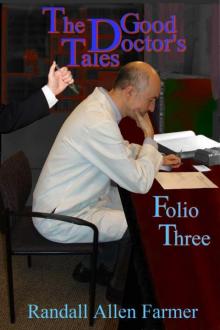 The Good Doctor's Tales Folio Three
The Good Doctor's Tales Folio Three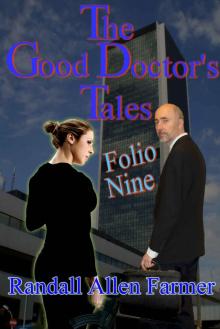 The Good Doctor's Tales Folio Nine
The Good Doctor's Tales Folio Nine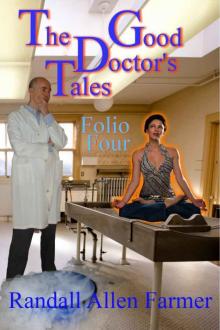 The Good Doctor's Tales Folio Four
The Good Doctor's Tales Folio Four An Age Without A Name (The Cause Book 5)
An Age Without A Name (The Cause Book 5)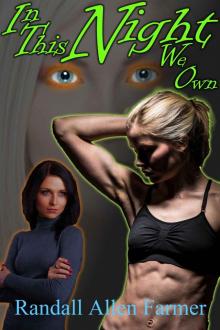 In this Night We Own (The Commander Book 6)
In this Night We Own (The Commander Book 6)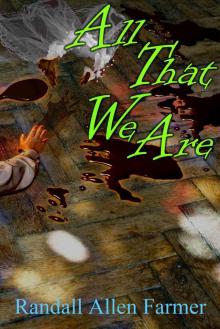 All That We Are (The Commander Book 7)
All That We Are (The Commander Book 7)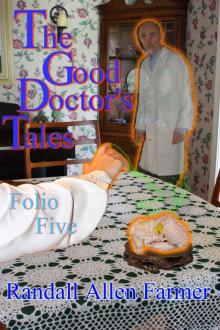 The Good Doctor's Tales Folio Five
The Good Doctor's Tales Folio Five An Age Without A Name
An Age Without A Name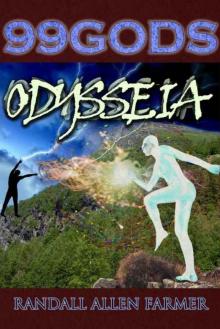 99 Gods: Odysseia
99 Gods: Odysseia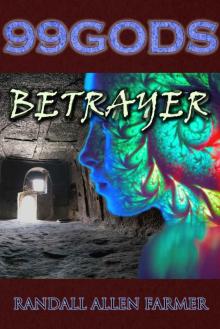 99 Gods: Betrayer
99 Gods: Betrayer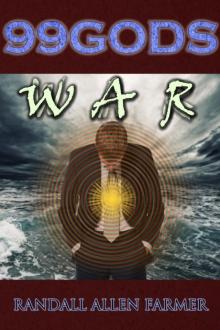 99 Gods: War
99 Gods: War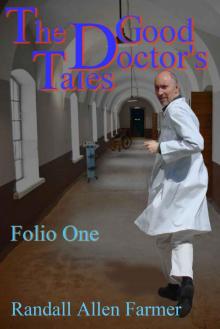 The Good Doctor's Tales Folio One
The Good Doctor's Tales Folio One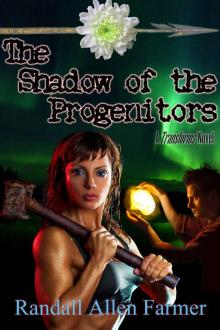 The Shadow of the Progenitors: A Transforms Novel (The Cause Book 1)
The Shadow of the Progenitors: A Transforms Novel (The Cause Book 1)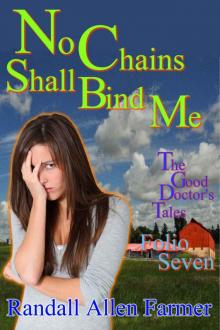 No Chains Shall Bind Me (The Good Doctor's Tales Folio Seven)
No Chains Shall Bind Me (The Good Doctor's Tales Folio Seven)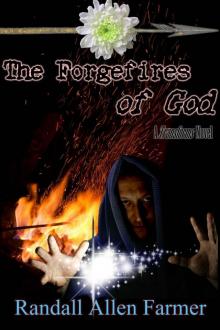 The Forgefires of God (The Cause Book 3)
The Forgefires of God (The Cause Book 3)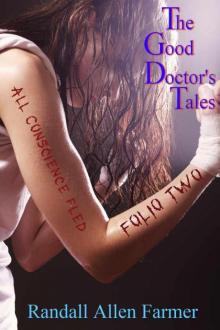 All Conscience Fled (The Good Doctor's Tales Folio Two)
All Conscience Fled (The Good Doctor's Tales Folio Two)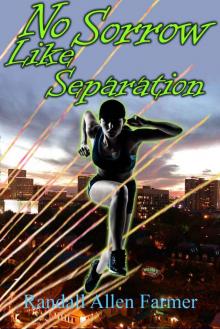 No Sorrow Like Separation (The Commander Book 5)
No Sorrow Like Separation (The Commander Book 5)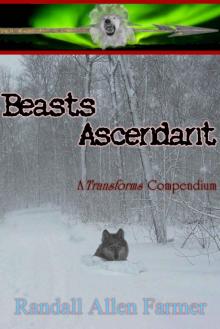 Beasts Ascendant: The Chronicles of the Cause, Parts One and Two
Beasts Ascendant: The Chronicles of the Cause, Parts One and Two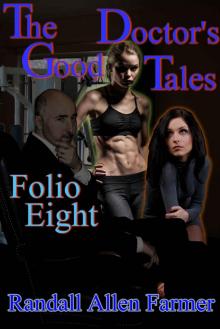 The Good Doctor's Tales Folio Eight
The Good Doctor's Tales Folio Eight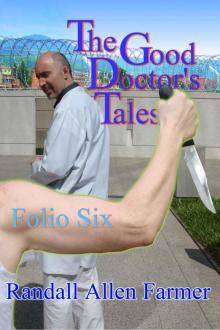 The Good Doctor's Tales Folio Six
The Good Doctor's Tales Folio Six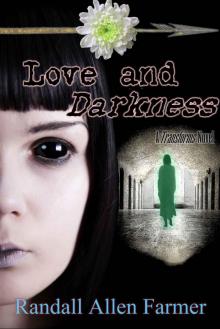 Love and Darkness (The Cause Book 2)
Love and Darkness (The Cause Book 2)